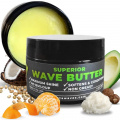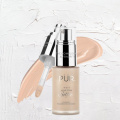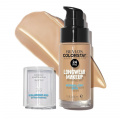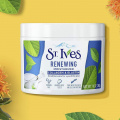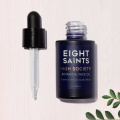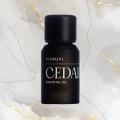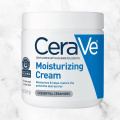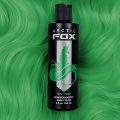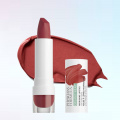The Benefits of Peppermint Oil for Hair Health
From refreshing fragrance to soothing headaches, peppermint oil for hair is the ultimate solution to calm your scalp and boost hair growth.
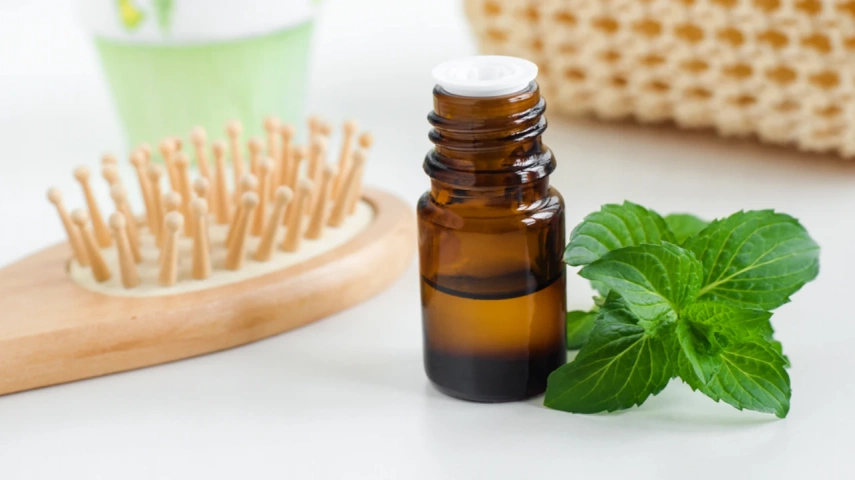
Essential oils are some of the best investments in your journey of healthy living. Peppermint oil is one such versatile and popular essential oil that’s been there for generations. Its reviving and energizing scent makes the oil popular in aromatherapy and self-care products. Extracted from peppermint leaves, this essential oil is much more than just a fragrance. The idea of using essential oils for hair growth has gained traction over the years, backed by research (1). Peppermint oil is no different. Peppermint oil for hair care is a fairly searched topic on the internet today and claims to alleviate a dry, itchy scalp, and aid in healthy hair growth. It energizes your hair and adds that much-coveted shine and volume (1).
What is Peppermint Oil?

Peppermint, or Mentha piperita L., is a perennial flowering plant from the western lands of Europe and North America. It belongs to the ‘mint’ family. Peppermint oil is an extract from the stem, leaves, and flowers of this plant (2).
The main components of peppermint oil (Mentha piperita L.) reported are as follows:
Menthol (30%–50%), menthone (15%–30%), menthyl acetate (2%–9%), neomenthol (4%–8%), 1,8-cineole (4%–7%), isomenthone (2%–4%), and menthofuran (1%–7%)
In popular culture, menthol has a cool, refreshing nature. Rightly so, this organic compound has anesthetic (numbing) effects that can relieve skin irritation and pain. It is known to alter the calcium ion transport in the nerves of the skin, which makes the cold receptors in our body sensitive.
Peppermint oil is well known for its potent antiviral, antimicrobial, antibacterial, and anti-inflammatory properties. It is frequently used in cosmetics, hair grooming items, and particularly pharmaceuticals (3).
Why Use Peppermint Oil on Hair?

Essential oils for hair growth are not just a fad; there are scientific studies that talk about their beneficial effects on the scalp and hair. Unlike most essential oils, peppermint has an added advantage of a pleasant fragrance, a cooling, calming, and soothing effect on the scalp soon after application. These features set it apart from other essential oils. This oil is ideal for scorching summers and stressful days (4).
Do Studies Support its Use for Hair Loss?
Yes, current research (1) studies have shown the positive effects of peppermint as a growth oil for hair. In a recent study from 2014, researchers used peppermint oil for mice. They applied the saline solution, peppermint oil, jojoba essential oil, and Minoxidil (an FDA-approved hair growth chemical) to investigate hair development in four groups of mice. After three weeks, the study revealed that the rodents had started growing hair quickly (follicle depth and quantity, and skin thickness were better). By the fourth week, it was clear that minoxidil grew 55% more hair and peppermint oil grew 92% more hair at a faster rate than usual (1).
However, there is scope for further research to isolate the effects and uses of peppermint oil for hair growth.
Benefits of Peppermint Oil for Hair

Peppermint oil has a number of benefits, the majority of which are due to its energizing qualities. It is known to aid in stimulating the scalp, which assists in a better hair growth cycle.
Here are the amazing benefits of peppermint oil for your hair :
- Anti-Inflammatory Properties
Peppermint oils have been shown to effectively reduce the inflammation-causing agents in the skin. It is vasodilatory in nature and hence promotes blood flow to the skin. Together, these properties reduce the redness and swelling of the skin and calm the scalp (5).
- Antibacterial Properties
Peppermint oil is known to interact with the cell membranes of harmful bacteria and prevent bacterial diseases of the scalp. It thereby maintains healthy sebum production and hair growth (5).
Speaking of antibacterial properties of peppermint, our contributor Nate Masterson, Hair Expert at Maple Holistics, says, “The menthol found in peppermint can have a cooling effect on the scalp which helps to soothe and calm any scalp irritations. Additionally, the menthol helps to stimulate blood circulation which means more nutrients and water can reach the scalp. Because of its antibacterial qualities, peppermint oil can help fight fungus and germs on the scalp. This is helpful for scalp concerns that might aggravate itching, like dandruff or fungal infections.”
- Anti-fungal Effects
Fungal infections are fairly common in the scalp and the hair. It results in an itchy, dry, flaky scalp with increased hair fall. Active ingredients like menthol and limonene in peppermint oils have been shown to inhibit fungal growth in the scalp (5).
- Promotes Hair Growth
There isn’t tons of evidence to prove peppermint oil’s efficacy for hair growth, but it has properties to enhance blood flow to the scalp, inhibit bacterial and fungal infection, and reduce inflammation and flaking, which together allow a smooth and healthy hair growth cycle. This reduces hair fall and promotes growth. A study (1) on an animal model proved that peppermint oil worked better as a hair growth agent than the only FDA-approved hair-promoting drug in the world, minoxidil (1).
- Enhances Hair Thickness
Peppermint essential oil promotes blood circulation to the skin and the scalp, which may aid in improving scalp thickness, hair follicle number, and hair follicle depth (6).
- Prevents Itching and Discomfort in the Scalp
Menthol, the primary compound of peppermint oil, is frequently utilized in a variety of skin treatments that require a topical application. Its antipruritic (reduced itching), analgesic (pain relieving), antimicrobial, and cooling properties help in keeping the scalp healthy (5).
10 Ways to Use Peppermint Oil for Hair
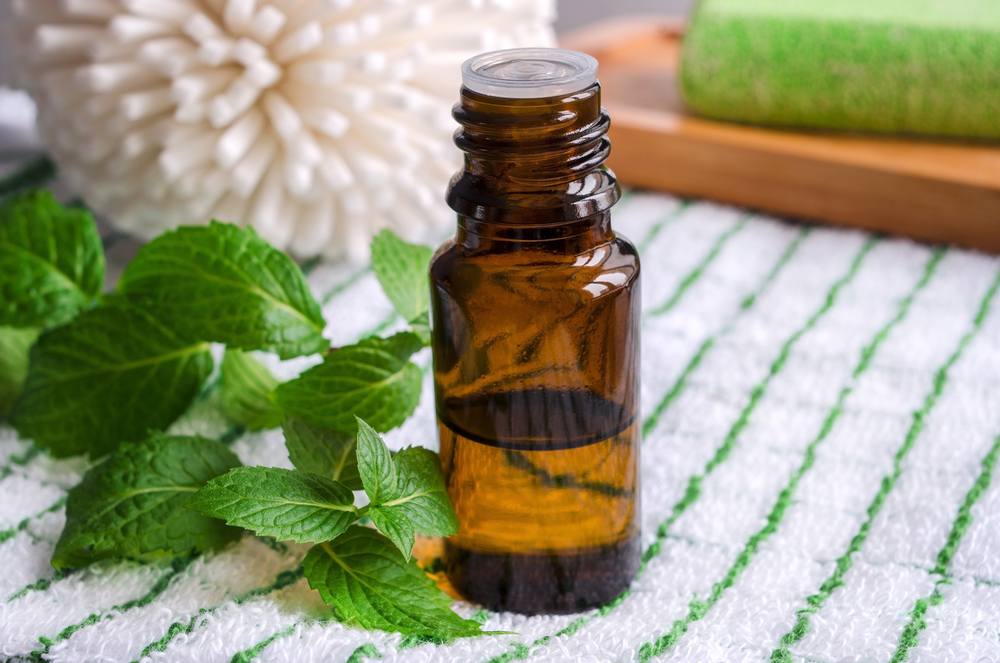
Peppermint oil should be used with caution when applied topically because it may irritate the skin and scalp when directly applied. It should often be diluted with a carrier oil prior to application to the scalp. If you have sensitive skin or a sensitive scalp, it is best to consult a hair specialist before using peppermint oil on your hair.
Here are some quick and easy ways to use peppermint oil for hair growth:
1. Peppermint Oil with Coconut Oil
Make a concoction of 3 teaspoons of coconut oil and 2-3 drops of peppermint oil. Thoroughly massage the mixed oil with your fingertips onto your scalp for 10-15 minutes. Leave it on for 30 minutes, and then wash it off with a mild shampoo.
Coconut oil is rich in fatty acids that are attracted to the protein in the hair shaft. They tend to nourish and moisturize the scalp and hair strands while aiding in the better absorption of peppermint oil (7).
2. Peppermint Oil with Jojoba Oil
Mix 2-3 drops of jojoba oil (another essential oil with amazing hair benefits) and 1-2 drops of peppermint oil in a carrier oil like coconut or olive oil and reap the benefits of a well-nourished, healthy, and lustrous mane (8).
3. Peppermint Oil with Shea Butter
Mix ¼ cup of shea butter with an equal quantity of coconut oil and add 5 drops of peppermint oil to it. Massage this mixture gently onto the hair strands for better conditioning. Shea butter can moisturize and condition your hair, soothe inflammation of the scalp, and also protect the inherent moisture of each hair strand (9).
4. How to Stimulate Hair Growth with Peppermint Oil and Rosemary Oil
You can mix ½ cups of castile soap with 10 drops of rosemary oil and 5 drops of peppermint oil to make an effective shampoo of your own. This DIY shampoo can be stored in an airtight bottle and used for months. There is a plethora of scientific evidence that talks about how to promote hair growth with rosemary oil and reduce bald patches (10).
5. Peppermint Oil with Almond Oil
Combine 1-2 drops of peppermint oil in a carrier oil, such as almond oil, and enjoy the benefits of a well-nourished, healthy mane. Almond oil is a moisturizer and protects your skin barrier effectively (11).
6. Peppermint Oil with Honey
Using a scrub while massaging your head is another way to maintain a healthy scalp. A scrub can aid in clearing clogged pores and enhancing shine, and massaging your scalp can encourage new hair growth.
Combine 1 tablespoon of honey, and 1 teaspoon of sugar, with 2 or 3 drops of peppermint essential oil. Gently massage the scrub into your scalp for a few minutes. Make sure your hair is wet before the massage. Finish by washing with shampoo and conditioner. Sugar articles are a good scrubbing agent, and honey is known to be moisturizing and antiseptic in nature (12).
7. Peppermint Oil with Castor Oil
Peppermint oil is well known for calming irritated skin because it has anti-microbial and anti-inflammatory properties. Combining 5 drops of peppermint oil, 1 teaspoon of jojoba oil, and 2 teaspoons of castor oil is a great way to deal with skin conditions. Apply the mixture to your scalp. Use a towel or shower cap to cover your hair. Before washing it out, allow it to sit for at least an hour. Castor oil promotes hair growth and reduces flaky scalp (13).
8. Peppermint Oil with Olive Oil
Using hair masks is an excellent way to add moisture to the hair shaft. You can maximize the advantages of a DIY hair mask by mixing peppermint oil with an oil that is mild, non-sticky, yet moisturizing in nature, such as olive oil.
Add 5 drops of peppermint essential oil and 1/2 cup of olive oil to a quarter cup of mashed avocado. Apply the mask to the ends after shampooing to treat localized split ends or to the entire head of hair for deep conditioning. Leave it on for 20 minutes, then wash it with warm water. Avocado is rich in essential fats and minerals that enhance the effects of the hair mask (14).
9. Peppermint Oil-Infused Shampoo
Add 2-3 drops of peppermint essential oil to 2-3 teaspoons of your regular shampoo to incorporate the oil into your daily hair-care routine.
10. Peppermint Oil-Infused Hair Conditioner
To incorporate adequate moisture into your hair, mix 2-3 teaspoons of conditioner with 2-3 drops of peppermint essential oil, and use it after a hair wash. Rinse off the conditioner thoroughly with warm water thereafter.
Our contributor Nate Masterson, says, “When peppermint oil is diluted and added to hair care products it can provide additional cleansing and also create a feeling of freshness for your scalp and hair. Peppermint also has antibacterial and anti-inflammatory properties which can help fight off scalp issues and reduce redness and swelling for people who have dandruff or other scalp issues. Furthermore, it provides a refreshing fragrance which lingers in your hair leaving it smelling fresh and clean.”

Conclusion:
Peppermint oil is a powerhouse of vital ingredients. The beauty of peppermint oil is that it is ingestible as well as topically applicable, and has a pleasing fragrance. Peppermint oil for hair actively boosts hair growth, volume, and luster. It has many potential applications, but you should be aware of all the potential risks and side effects before using it. Before applying peppermint oil to the skin, always dilute it with carrier oil to reduce sensitivity. Never apply undiluted essential oils, and avoid getting them in your eyes.
Contributor: Nate Masterson, Hair Expert - Maple Holistics
References:
1. Oh JY, Park MA, Kim YC. Peppermint oil promotes hair growth without toxic signs. Toxicological Research. 2014 Dec;30:297-304.
https://link.springer.com/article/10.5487/TR.2014.30.4.297
2. Kligler B, Chaudary S. Peppermint oil. American family physician. 2007 Apr 1;75(7):1027-30.
https://www.aafp.org/pubs/afp/issues/2007/0401/p1027.html
3. Abelan US, de Oliveira AC, Cacoci ÉS, Martins TE, Giacon VM, Velasco MV, Lima CR. Potential use of essential oils in cosmetic and dermatological hair products: A review. Journal of Cosmetic Dermatology. 2022 Apr;21(4):1407-18.
https://onlinelibrary.wiley.com/doi/abs/10.1111/jocd.14286
4. Zhao H, Ren S, Yang H, Tang S, Guo C, Liu M, Tao Q, Ming T, Xu H. Peppermint essential oil: Its phytochemistry, biological activity, pharmacological effect and application. Biomedicine & Pharmacotherapy. 2022 Oct 1;154:113559.
https://www.sciencedirect.com/science/article/pii/S0753332222009489
5. Kamatou GP, Vermaak I, Viljoen AM, Lawrence BM. Menthol: a simple monoterpene with remarkable biological properties. Phytochemistry. 2013 Dec 1;96:15-25.
https://www.sciencedirect.com/science/article/abs/pii/S0031942213003063
6. Craighead DH, Alexander LM. Topical menthol increases cutaneous blood flow. Microvascular research. 2016 Sep 1;107:39-45.
https://www.sciencedirect.com/science/article/abs/pii/S0026286216300401?via%3Dihub
7. Rele AS, Mohile RB. Effect of mineral oil, sunflower oil, and coconut oil on prevention of hair damage. J Cosmet Sci. 2003 Mar-Apr;54(2)
https://pubmed.ncbi.nlm.nih.gov/12715094/
8. Gad HA, Roberts A, Hamzi SH, Gad HA, Touiss I, Altyar AE, Kensara OA, Ashour ML. Jojoba Oil: An Updated Comprehensive Review on Chemistry, Pharmaceutical Uses, and Toxicity. Polymers (Basel). 2021 May 24;13(11):1711.
https://www.ncbi.nlm.nih.gov/pmc/articles/PMC8197201/
9. Ayanlowo O, Ebie C, Cole?Adeife O, Ilomuanya M, Adegbulu A. Shea butter as skin, scalp, and hair moisturizer in Nigerians. Dermatologic Therapy. 2021 Mar;34(2):e14863.
10. Panahi Y, Taghizadeh M, Marzony ET, Sahebkar A. Rosemary oil vs minoxidil 2% for the treatment of androgenetic alopecia: a randomized comparative trial. Skinmed. 2015 Jan-Feb;13(1):15-21.
https://pubmed.ncbi.nlm.nih.gov/25842469/
11. Ahmad Z. The uses and properties of almond oil. Complement Ther Clin Pract. 2010 Feb;16(1):10-2. doi: 10.1016/j.ctcp.2009.06.015. Epub 2009 Jul 15.
https://pubmed.ncbi.nlm.nih.gov/20129403/
12. Burlando B, Cornara L. Honey in dermatology and skin care: a review. J Cosmet Dermatol. 2013 Dec;12(4):306-13. doi: 10.1111/jocd.12058.
https://pubmed.ncbi.nlm.nih.gov/24305429/
13. Final report on the safety assessment of Ricinus Communis (Castor) Seed Oil, Hydrogenated Castor Oil, Glyceryl Ricinoleate, Glyceryl Ricinoleate SE, Ricinoleic Acid, Potassium Ricinoleate, Sodium Ricinoleate, Zinc Ricinoleate, Cetyl Ricinoleate, Ethyl Ricinoleate, Glycol Ricinoleate, Isopropyl Ricinoleate, Methyl Ricinoleate, and Octyldodecyl Ricinoleate. Int J Toxicol. 2007;26 Suppl 3:31-77.
https://pubmed.ncbi.nlm.nih.gov/18080873/
14. Lin TK, Zhong L, Santiago JL. Anti-Inflammatory and Skin Barrier Repair Effects of Topical Application of Some Plant Oils. Int J Mol Sci. 2017 Dec 27;19(1):70.





 JOIN OUR WHATSAPP CHANNEL
JOIN OUR WHATSAPP CHANNEL



































